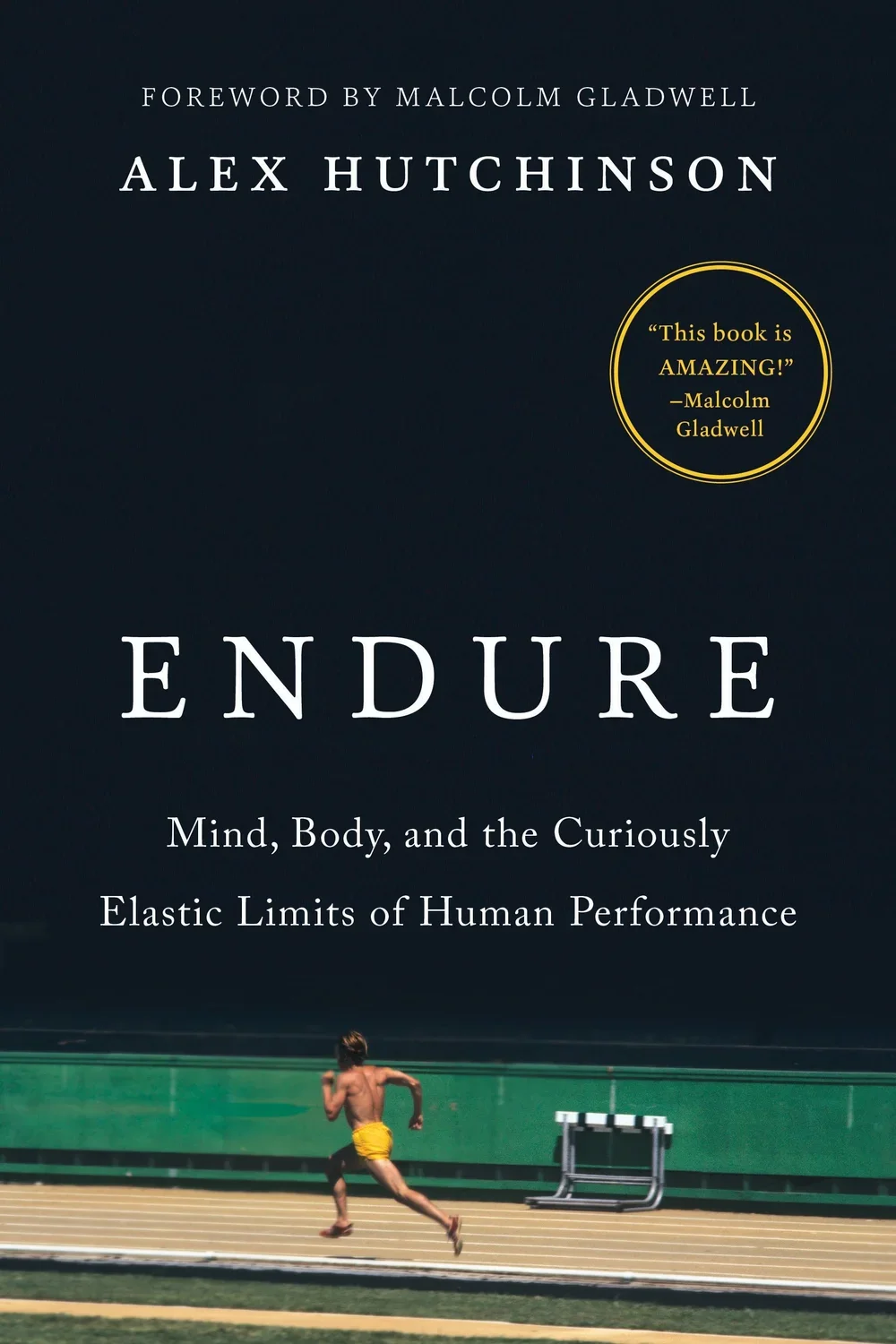#3. What are we truly capable of achieving?
Alex Hutchinson explores the science of human limits.
What are we actually truly capable of achieving?
In this conversation, science journalist and former national-team runner Alex Hutchinson and Dr. Greg explore the “curiously elastic” limits of human performance—why endurance underpins achievement across domains, and how the brain co-sets the ceiling we feel in the body. Drawing on the research behind Endure, Alex discussed how perception of effort, context, and belief interact with physiology to shape what we can actually do in sport, work, and life.
You will learn that endurance is a universal performance skill, the brain plays a decisive role alongside muscles, lungs, and fuel—making many “walls” more negotiable than they feel, and pain, oxygen, heat, thirst, and fuel each have distinct brain–body dynamics that can be trained and managed.
You’ll discover how to use “effort reframing” to make your workouts feel easier and to extend your performances safely.
If you are feeling stuck at a performance ceiling—“I just can’t go farther/faster or focus longer”, then this episode will give you a science-based framework to reinterpret those ceilings and reach new heights.
Because your endurance and potential is trainable and Alex Hutchinson can show us how to break through.
Key take aways:
Endurance is a skill you can train
Your brain sets your limits
You can train your mind like you train your body
Consistency beats heroics
“Endurance is ‘the struggle to continue against a mounting desire to stop.”
Today’s Expert Guest - Alex Hutchinson, PhD
Dr. Hutchinson’s work sits at the intersection of lab science and lived performance. As an elite runner turned physicist-journalist, he interrogates popular training myths and distills complex findings on pain, pacing, hydration, heat, and perception of effort into clear, actionable takeaways. What sets him apart is a rigorous but humble approach: he tests ideas against data and real-world scenarios, showing how the brain regulates physical limits—and how simple, evidence-based practices can safely stretch those limits. The result is a uniquely credible, athlete- and reader-friendly work that helps people apply science to sport, work, and life.
Follow Dr. Alex on Instagram & Linked In.
Check out his website.
Explore his books.
ENDURE: Mind, Body, and the Curiously Elastic Limits of Human Performance
The capacity to endure is the key trait that underlies great performance in virtually every field. But what if we all can go farther, push harder, and achieve more than we think we’re capable of?
Blending cutting-edge science and gripping storytelling in the spirit of Malcolm Gladwell—who contributes the book’s foreword—award-winning journalist Alex Hutchinson reveals that a wave of paradigm-altering research over the past decade suggests the seemingly physical barriers you encounter as set as much by your brain as by your body. This means the mind is the new frontier of endurance—and that the horizons of performance are much more elastic than we once thought.
But, of course, it’s not “all in your head.” For each of the physical limits that Hutchinson explores—pain, muscle, oxygen, heat, thirst, fuel—he carefully disentangles the delicate interplay of mind and body by telling the riveting stories of men and women who’ve pushed their own limits in extraordinary ways.
This podcast contains advice and information relating to health and wellness. It should be used to supplement rather than replace the advice of your doctor or another trained health professional. If you know or suspect that you have a health problem, seek your physician’s advice before embarking on any medical program or treatment. All efforts have been made to assure the accuracy of the information contained in this podcast / interview / article as of the date of publication. The author and publisher disclaim liability for any medical or other outcomes that may occur as a result of applying the methods suggested in this material.




